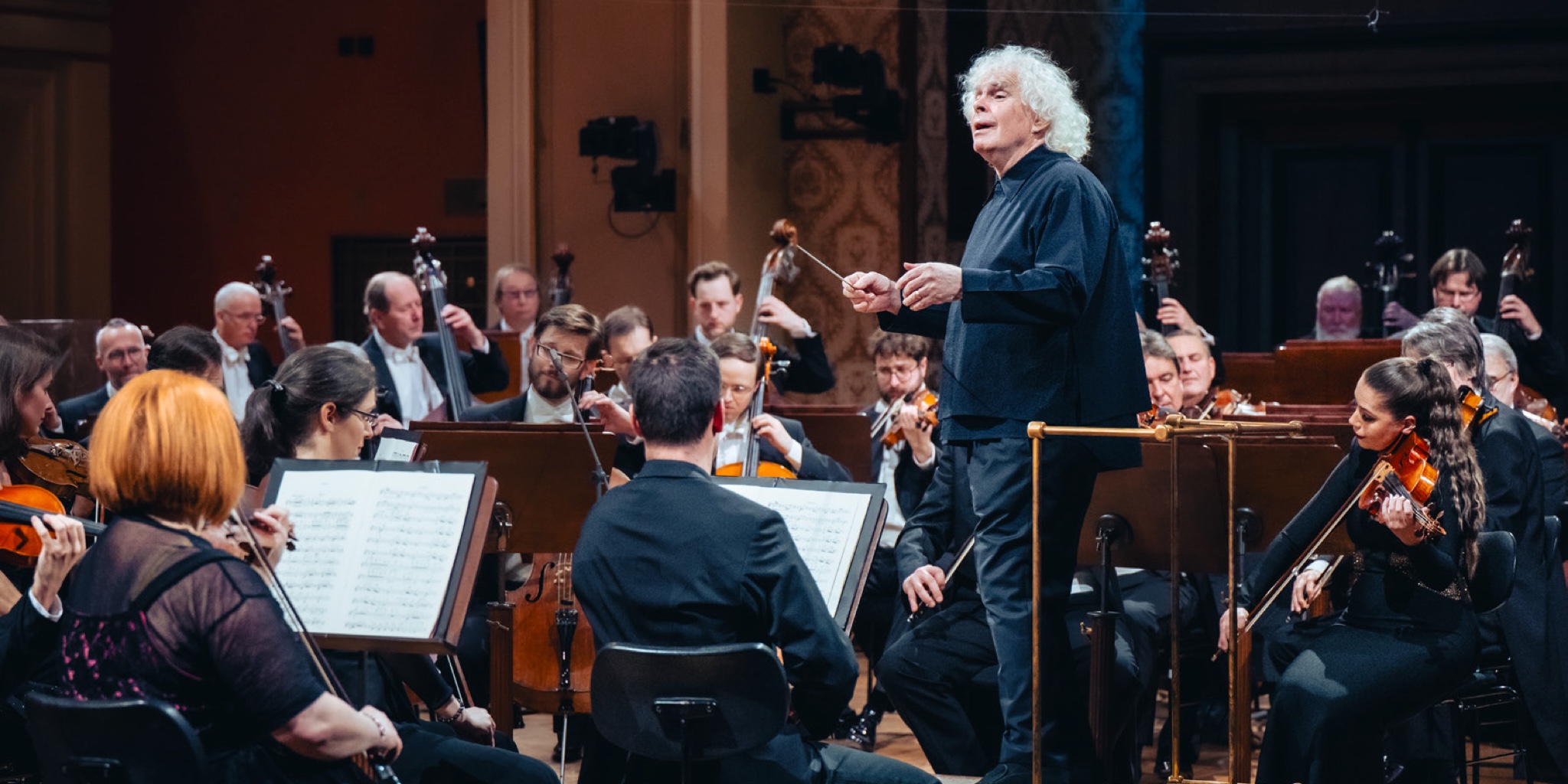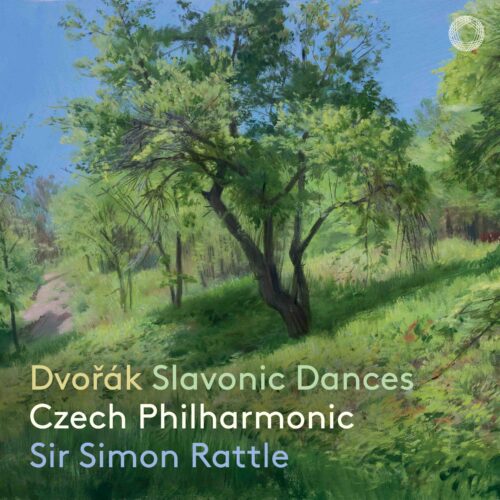Dvorak: Slavonic Dances
Quality and Channels Help
Dvořák’s Slavonic Dances have fared well on disc with classic performances from, amongst others, Kubelik, Sejna and Talich. Unsurprisingly the Czech Philharmonic has recorded them on numerous occasions, on this, their third album with Simon Rattle their playing is marvellous and they still actually sound like an Eastern European orchestra. Much of this is down to the very large number of Czech players they field, so if you compare the vibrant, characterful woodwind with those of Talich and Sejna, they sound very much alike and as you might expect today of a great orchestra the ensemble is superb.
Rattle’s approach to tempi is decidedly old-world, in that that while the various sections of each score are full of ritardandi, á tempo markings, and major changes of pace, he often introduces others, such as in the opening Moderato, quasi Menuetto of Op.78/6, all of which sound completely natural. The attack in the faster sections of each dance can be ferocious, yet the rhythms are sprung. There is a sense of joy in so much of the music-making; the orchestra were obviously enjoying themselves. Clarity of line and texture is exemplary, time and again Rattle will highlight inner parts, and the phrasing brings a smile to the face. In the last three dances of Op.78, where Dvořák brackets a fast and furious Kolo with a far more ruminative Menuetto and Valse, Rattle’s pacing, phrasing and the orchestral playing give the music unusual depth.
Despite only recording in 24/96, Pentatone offer new albums in DSD512, which was used because as the ever the acoustic, definition and instrumental timbres are more realistic. Never having been to the hall it is difficult to tell whether the very present woodwind have occasionally been tweaked, but overall, there is plenty of power and projection and the orchestras distinctive sound is well captured. All of which adds up to a very strong recommendation.


